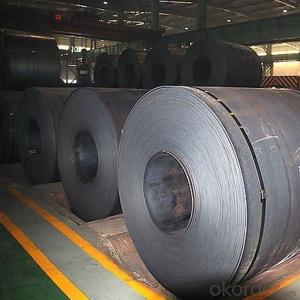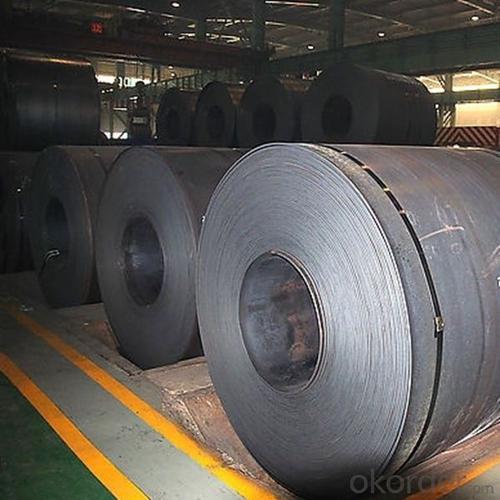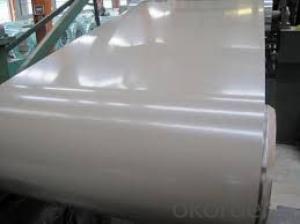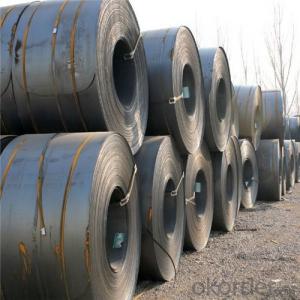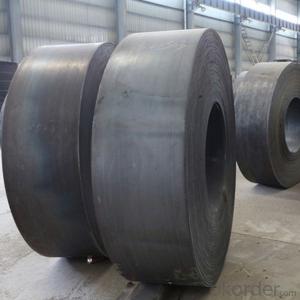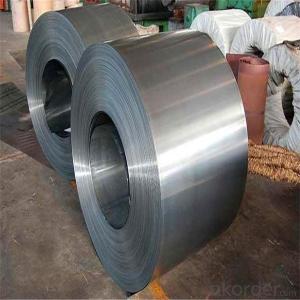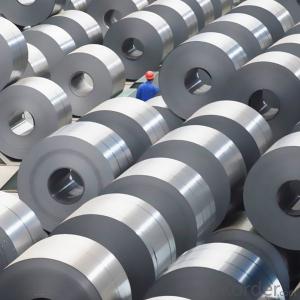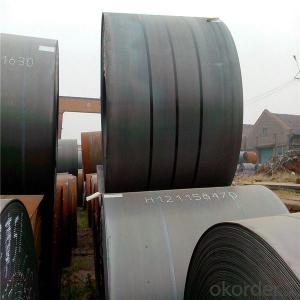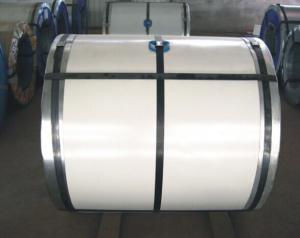Hot Rolled Steel Coils in Hot Sale Made in China for Wholesale
- Loading Port:
- Tianjin
- Payment Terms:
- TT OR LC
- Min Order Qty:
- 28 m.t.
- Supply Capability:
- 10000000 m.t./month
OKorder Service Pledge
OKorder Financial Service
You Might Also Like
Specification
DESCRIPTION FOR SS400 CARBON STEEL SHEET
1.Thickness: 1-200mm
2.Width: 100-3000mm
3.Length: 1000-12000mm
4. Applications :mining machinery, environmental protection, engineering
5. Grade:SS400 A 36 Q195.Q235.Q345.SPCC.SPCH
6.Surface : Hot Rolled Cold Rolled Galvanized Steel
PACKING:
1.Big thickness:by bulk vessel
2.Small thickness:packed by steel strips and shipped by container
3.According to the requirements of customers'
TRADE TERMS :FOB, CFR, CIF
PICTURES:
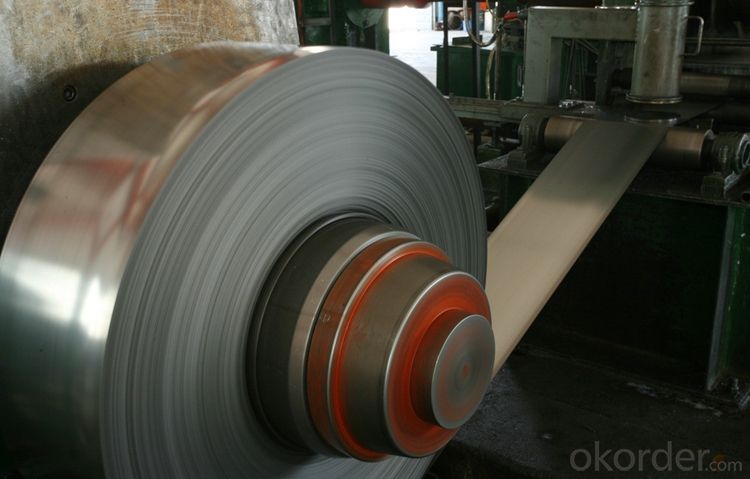
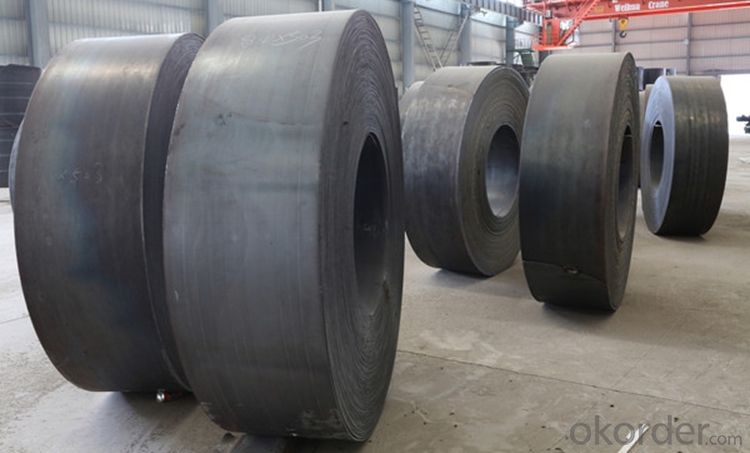
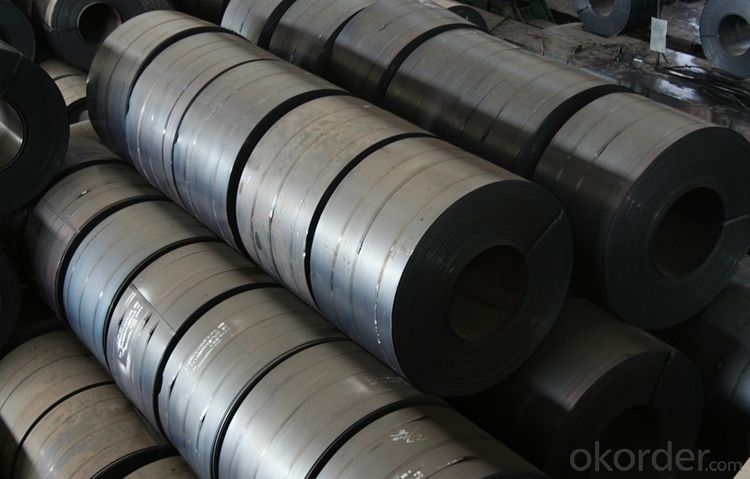
FEATURES OFSTEEL COILS
(1)Good ductility
(2)Good corrosion resistance
(3)Excellent abrasion resistance and fatigue strength
(4)Good weldability
(5)Oxidation resistant performance
(6)Excellent in high temperature
OUR SERVICE
1.High quanlity and reasonable price.
2.Customized on-demand.
3.Reasonable shipping and fast delivery.
4.Free sample.
FAQ:
1.Q:How about the delivery time?
A:Within 15-30days after receiving the deposit or L/C at sight.
2.Q:How about the trade terms?
A:EXW,FOB,CFR,CIF will be accepted.
3.Q:How about your payment terms?
A:30%TT in advance and the balance against of copy of B/L.
The irrevocable L/C at sight will be accepted.
- Q: What is the role of steel coils in the oil and gas industry?
- The oil and gas industry heavily relies on steel coils, which have a crucial role to play. These coils are primarily utilized for the transportation and storage of oil and gas products. Typically, they are crafted from high-quality steel and designed to endure the harsh conditions encountered during the extraction, processing, and distribution of oil and gas. One of the key functions of steel coils in this industry is to serve as containers for transportation purposes. Oil and gas are frequently transported over long distances, either through pipelines or tankers. Steel coils are used in the construction of these pipelines and storage tanks, providing a robust and secure means of transporting these valuable resources. The strength of steel ensures that the pipelines and storage facilities can withstand the pressure and temperature fluctuations that occur during transportation. Steel coils also play an essential role in the production of drilling equipment. The drilling process involves extracting oil and gas from deep underground reservoirs. Steel coils are employed in the manufacturing of various components of drilling rigs, including pipes, casings, and wellheads. These components must be capable of withstanding the high pressures and temperatures encountered during drilling operations. Steel coils offer the necessary strength and durability to ensure the reliability and safety of drilling equipment. Additionally, steel coils are utilized in the construction of offshore platforms, which are bases for drilling operations in offshore oilfields. The severe marine environment, characterized by saltwater exposure and strong winds, demands materials that can resist corrosion and provide structural integrity. Steel coils are used to fabricate the structural components of these offshore platforms, ensuring their ability to withstand the challenging offshore conditions. In conclusion, steel coils are indispensable in the oil and gas industry. They are employed for the transportation and storage of oil and gas products, the construction of pipelines and storage tanks, the manufacturing of drilling equipment, and the fabrication of offshore platforms. The strength, durability, and resistance to harsh conditions make steel coils an essential material in this industry.
- Q: How are steel coils used in the production of metal enclosures?
- Steel coils are used in the production of metal enclosures as they provide the raw material needed for forming and shaping the enclosure. The steel coils are processed and cut into sheets or strips, which are then bent, welded, or stamped to create the desired shape and structure of the enclosure. These steel sheets offer strength, durability, and a smooth surface finish to the final product, making them ideal for manufacturing metal enclosures used in various industries such as automotive, electronics, and construction.
- Q: How are steel coils used in the production of gutters and downspouts?
- Steel coils are used in the production of gutters and downspouts as they are uncoiled and fed into a roll-forming machine. This machine shapes and cuts the steel into the desired gutter or downspout profiles. The steel coils provide the necessary raw material for creating durable and long-lasting gutters and downspouts that effectively channel rainwater away from buildings.
- Q: How are steel coils used in the production of HVAC ductwork?
- Steel coils are commonly used in the production of HVAC ductwork due to their durability and strength. The coils are typically made of galvanized steel, which provides protection against corrosion and extends the lifespan of the ductwork. The manufacturing process begins with the steel coils being unrolled and cut into the desired length. The coils are then fed through a machine that shapes the steel into a rectangular or round duct form. This shaping process can be done using various techniques such as roll forming or press braking. Once the steel has been formed into the desired duct shape, it is then joined together using various methods such as welding or locking mechanisms. Welding is often used for rectangular ducts, while locking mechanisms like snap locks or Pittsburgh seams are commonly used for round ducts. These joining techniques ensure that the ductwork is secure and airtight. After the ductwork has been assembled, it may undergo additional processes such as insulation or lining. Insulation helps to reduce heat loss or gain, while lining can improve the acoustic properties of the ductwork. These additional steps are often done to meet specific requirements or regulations. Overall, steel coils play a crucial role in the production of HVAC ductwork as they provide strength, durability, and protection against corrosion. The versatility of steel allows for various shapes and sizes of ductwork to be fabricated, making it a popular choice for HVAC systems.
- Q: What are the different methods of shearing steel coils?
- There are several methods used for shearing steel coils, including rotary shearing, slitting, and laser cutting. Rotary shearing involves the use of rotating blades to cut the coil into smaller sections. Slitting involves passing the coil through a set of circular blades that make multiple cuts parallel to the coil's width. Laser cutting, on the other hand, uses a high-powered laser beam to precisely cut through the steel coil. Each method has its advantages and is chosen based on factors such as the desired accuracy, speed, and type of steel being cut.
- Q: What are the advantages of using steel coils in construction?
- There are several advantages of using steel coils in construction. Firstly, steel coils are extremely strong and durable. They have a high tensile strength, which means they can withstand heavy loads and resist deformation. This makes them ideal for structural applications in construction, such as beams, columns, and frames. Secondly, steel coils are highly versatile. They can be easily shaped and molded into various forms, allowing for flexibility in design and construction. Steel coils can be rolled, bent, cut, and welded to meet specific project requirements. This adaptability makes them suitable for a wide range of construction applications. Another advantage of using steel coils in construction is their resistance to corrosion. Steel coils are often coated with protective coatings, such as galvanized or stainless steel, to prevent rusting and corrosion. This ensures that the structural integrity of the building remains intact over time, even in harsh environmental conditions. Furthermore, steel coils offer excellent fire resistance. Unlike other construction materials like wood, steel does not burn or contribute to the spread of fire. This makes it a safer choice for construction, particularly in high-rise buildings or areas prone to fire hazards. Lastly, steel coils are cost-effective. While the initial cost of using steel coils may be higher compared to some other materials, their longevity and low maintenance requirements make them a cost-efficient option in the long run. Steel coils have a long lifespan and require minimal repairs or replacements, resulting in reduced maintenance costs and increased overall value. In conclusion, the advantages of using steel coils in construction include their strength, versatility, corrosion resistance, fire resistance, and cost-effectiveness. These qualities make steel coils an excellent choice for various construction applications, contributing to the durability and safety of buildings.
- Q: Can i use steel shot in a remington 870 wingmaster full choke 30 inch barrel. the shotgun is in great shape and about 20 or 25 years old probably. thank you. the steel shot i have got is 12 gauge 2 3/4 in 1550 velocity 1 1/16 oz 2 shot winchester xpert high velocity steel shot
- Because of environmental concerns steel, bismuth and tungsten is replacing lead shot, for bird hunting. The problem with steel shot is the hardness, which can cause damage to the bore and choke in older shotguns. Unlike lead there is no give to steel and it can damage the bore especially if the choke is on full. Tungsten is also very hard, but it is often alloyed with other metals making it softer causing less damage in older models shotguns. Bismuth falls in between tungsten and steel, being the softer of the two by far.
- Q: What is the most common bullet resistant steel that is used, can certain bullets just not be stopped, also what type of glass is bullet resistant or is that special made.
- The trauma plates in most vests are made from titanium steel. But the real issue is how thick a plate of a particular material must be to soak up the kinetic energy of a particular bullet. Certain bullets are a lot easier to stop than others. But, again, it's all about the bullet mass and velocity. Bulletproof glass is usually several layers of glass bonded together with a clear plastic film and it's generally special made. Doug
- Q: Can steel coils be coated with ceramic?
- Yes, steel coils can be coated with ceramic.
- Q: How do steel coils contribute to sound insulation in buildings?
- Steel coils can contribute to sound insulation in buildings due to their high density and ability to absorb and dampen sound waves. The compact arrangement of steel coils within walls or floors helps to reduce the transmission of sound, thus providing a barrier against noise and enhancing the overall acoustic performance of the building.
Send your message to us
Hot Rolled Steel Coils in Hot Sale Made in China for Wholesale
- Loading Port:
- Tianjin
- Payment Terms:
- TT OR LC
- Min Order Qty:
- 28 m.t.
- Supply Capability:
- 10000000 m.t./month
OKorder Service Pledge
OKorder Financial Service
Similar products
Hot products
Hot Searches
Related keywords
